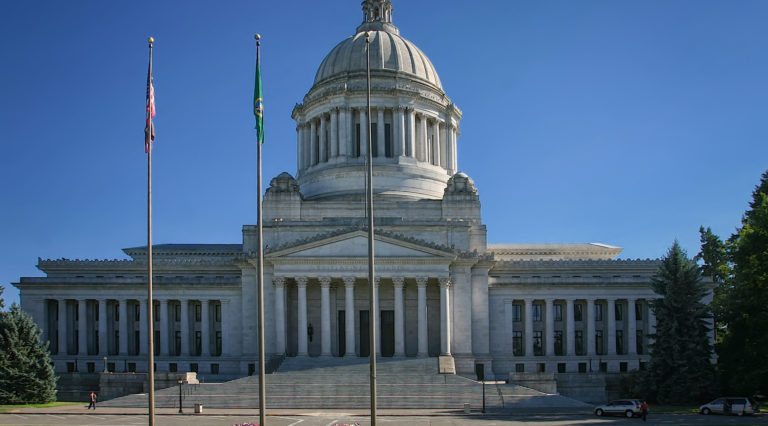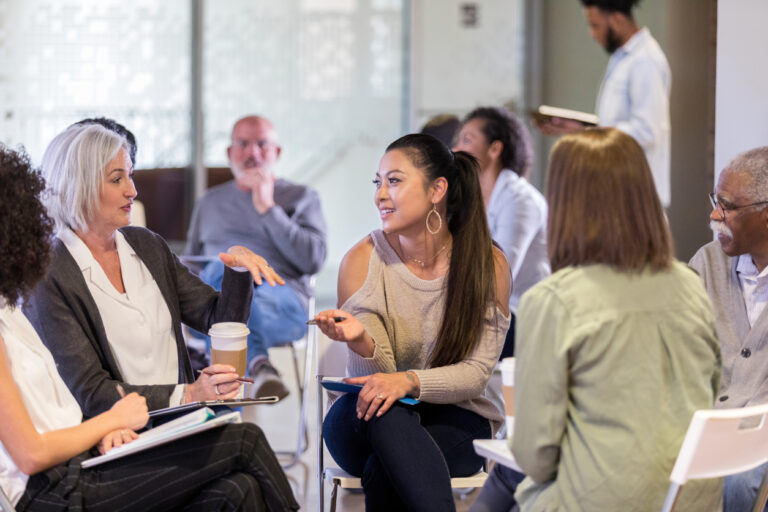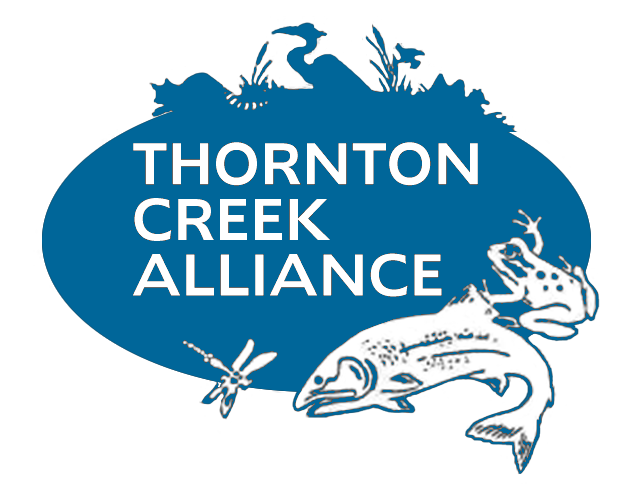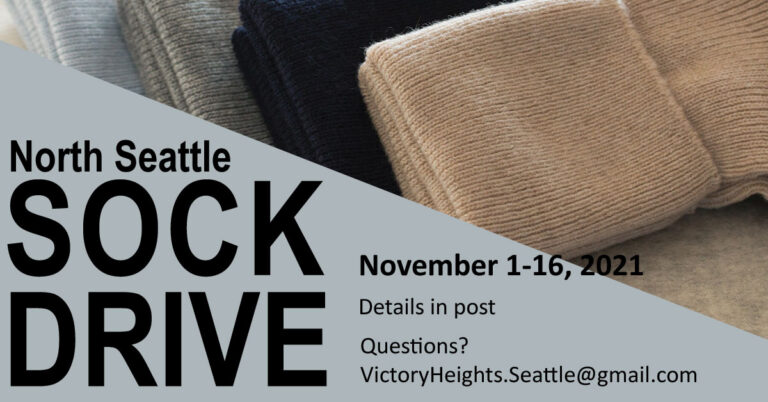“Double Trouble” — Upcoming Seattle Emergency Communication Hub Drills
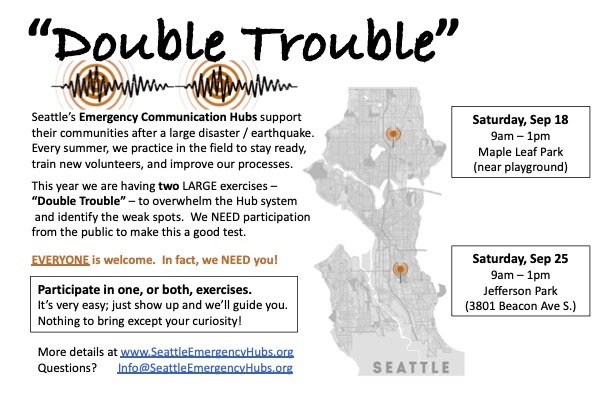
“Double-Trouble” is a Win-Win-Win
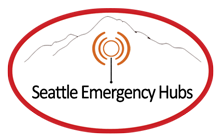
Feeling pummeled by the pandemic? Proactively prepare for a different type of disaster. Seattle’s Emergency Communication Hubs are responding to imaginary earthquakes on two different Saturdays in September. “Double Trouble”, our upcoming exercise, will run from 9am to 1pm on September 18th and again on the 25th. Hub Volunteers need YOU to make this exercise successful. They need practice responding to the overwhelming requests for help that are likely after the “big one” hits. Everyone benefits from these drills. Volunteers get better at supporting their communities, the public learns what the Hubs can and cannot do, and the overall system gets stronger. Win Win Win.
What is an “Emergency Communication Hub”? It is a practical solution that takes advantage of a well-known phenomenon. Humans are social creatures; they instinctively gather after a large disaster to figure out what to do. Whether formally identified or not, every community has a natural gathering spot. It’s usually a green space, a parking lot, or a wide street. Somewhere open to the sky. We call these spaces “Hubs”. Groups of volunteers all over Seattle are familiar with the natural gathering spots in their neighborhoods and have agreed to “activate” when normal communications are down (no cell phone signals and no internet) to help their communities. These groups of neighbors become their communities’ Emergency Communication Hub. Seattle currently has sixty-six active Hubs. They have a system to collect and post information from authorities and help their neighbors meet basic needs. In the more developed sites, neighbors have pre-positioned supplies and equipment at Hub sites to help with this organizing effort. These supplies will be used and the processes will be tested during this exercise in September.
Emergency Communication Hub volunteers are well-trained. They meet monthly to stay current on the City’s plans for disaster response and recovery and share best practices amongst the group. They coordinate with Ham radio operators to send information back-and-forth to City officials and to other Hubs. Hub volunteers and Ham radio operators in Seattle’s Auxiliary Communication Service (or ACS) will work together during the “Double Trouble” exercises.
Show up for either, or both, fake earthquake events. Saturday, Sep 18th, from 9am to 1pm we’ll be on the north side of town – at the Maple Leaf Playground. Saturday, Sep 25th, from 9am to 1pm we’ll be on the south side of town – Jefferson Park. Getting involved is easy. Once you arrive and you’re ready, you will be handed a piece of paper with a situation written on it. The situation will be something that could realistically happen after a large earthquake. Your household needs drinking water. Your pet is lost. The gas station just caught fire but 9-1-1 is overwhelmed. Approach the Hub’s “Greeter” and let them know your situation. Hub volunteers will put their training into action to see if they can provide help. Participating in the exercise is valuable because you will learn SO much about what to expect if Seattle were to have a large earthquake. Your participation will help Hub volunteers improve their skills and adapt their processes. Please attend either, or both, Saturdays. More information can be found on their website at www.SeattleEmergencyHubs.org or by contacting Info@SeattleEmergencyHubs.org.
